Is it weak willpower not to put down your phone?
Are search engines, social media, and bicycles just the tools we use?
Are algorithms and techniques neutral?
Why is fake news invincible?
"Inside volume", "tool man", "social animal" and so on have become popular language. Today, young people are probably the generation most skilled in invoking Marx's concept of "alienation" in their daily lives. We began to consciously "escape the system", some people fled the north up wide, some people moved into the countryside to live pastoral life, some people cut off, some people from time to time to participate in meditation camps, some people outdoor camping ... There are many kinds of systems, but wherever we are, the first thing we do when we wake up every day is not to look at the phone? Just behind the phone screen, how are you going to escape?Netflix documentary "Monitoring Capitalism: Smart Traps"(The Social Dilemma) The word "manipulation" appears so often that it's creepy. This piece pointedly points out thatInternet business model essentially treats users as "products" rather than "customers"And this business model has created an unprecedented profit peak for the Internet industry; using Persuasive Technology algorithms to fool users' eyes and brains like magic; and business interests are driving false information to spread six times faster than real informationPerhaps the root cause of the problem is that you are manipulated by the screen, more economic value than you live a full life。Public No.It's a good joboften"Recorded the "30 Truths" mentioned in the documentary.This article was re-edited at the time of reprint, and the 30 categories were combed intoFive topics。And at the end of the article, he adds that the documentary ends with silicon valley professionals givingSelf-help treasure trove“。We've also prepared a list of books related to "Surveillance Capitalism" and welcome you to reply in the Public Number dialog box.Monitor capitalism"Get."
Is it weak willpower not to put down your phone? Are search engines, social media, and bicycles just the tools we use? Are algorithms and techniques neutral? Why is fake news invincible?
One of the film's narrative lines is told on camera by Google, former Facebook employees, ins early employees, Twitter's senior deputy chief engineer and other Internet companies, where there are no shortage of designers of like-for-like features on social media, and even those who helped Facebook build its business model, who have left out out of fear of the industry's ethics, and are now coming forward again to tell the truth and warn them about what they see.01
The nature of business models in the Internet industry:
If you don't spend money on products,
Then you're the product you're selling
(If you are not paying for the product,
then YOU ARE THE PRODUCT.)
One of the interviewees, Tristan Harris, is a former Google employee who worked on the Google Mail team. He felt very tired because they had been discussing what the mailbox should look like and what color it should be in.He admits that he's already addicted to email, but interestingly, everyone on the team wants to make users more addicted by design.Have you ever reflected on this phenomenon? He believed that Google had a moral responsibility to solve the problem, and his reflections and questions resonated with many of his colleagues at Google. But then it didn't happen inside Google.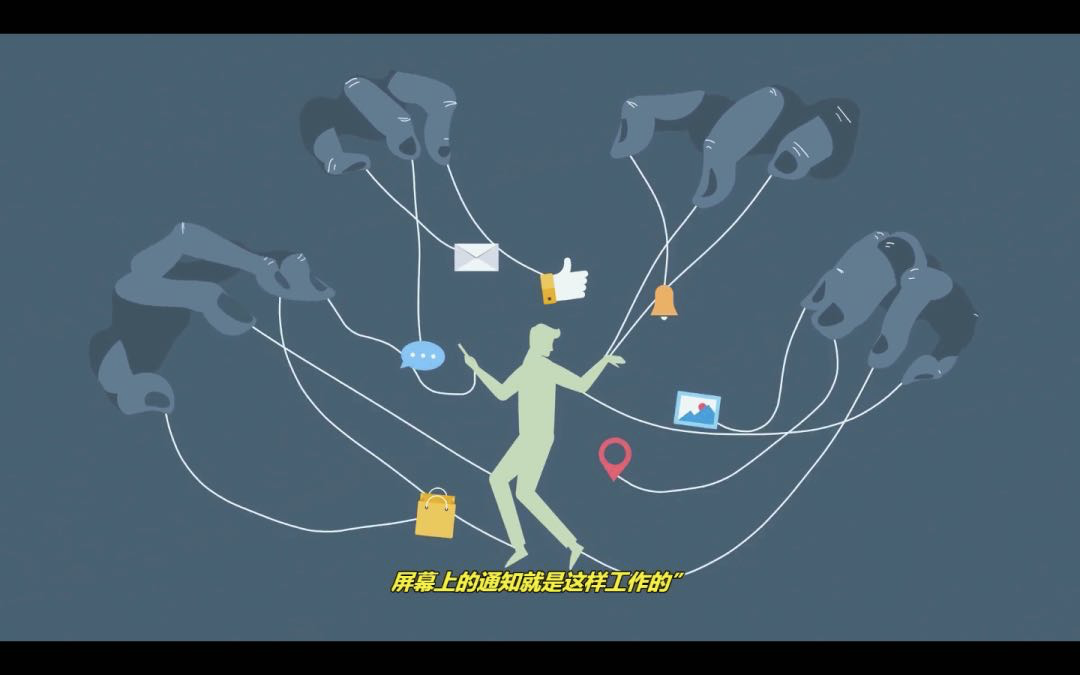 The head of Commercialization at Facebook says he helped Facebook figure out how to make money when it was founded two years later, when he thought advertising might be the most elegant business model. Silicon Valley's business model used to be that users paid for hardware and software, but the new business model over the past decade or so has been that a lot of Internet products are free, but they're not really free, behind which advertisers are paying, advertisers are customers of these Internet products, and users are actually selling goods. The classic saying is,If you don't spend money on a product, you're the one being sold.By the way,In the English context, there are only two industries called "user", the drug and Internet industries.
The head of Commercialization at Facebook says he helped Facebook figure out how to make money when it was founded two years later, when he thought advertising might be the most elegant business model. Silicon Valley's business model used to be that users paid for hardware and software, but the new business model over the past decade or so has been that a lot of Internet products are free, but they're not really free, behind which advertisers are paying, advertisers are customers of these Internet products, and users are actually selling goods. The classic saying is,If you don't spend money on a product, you're the one being sold.By the way,In the English context, there are only two industries called "user", the drug and Internet industries. 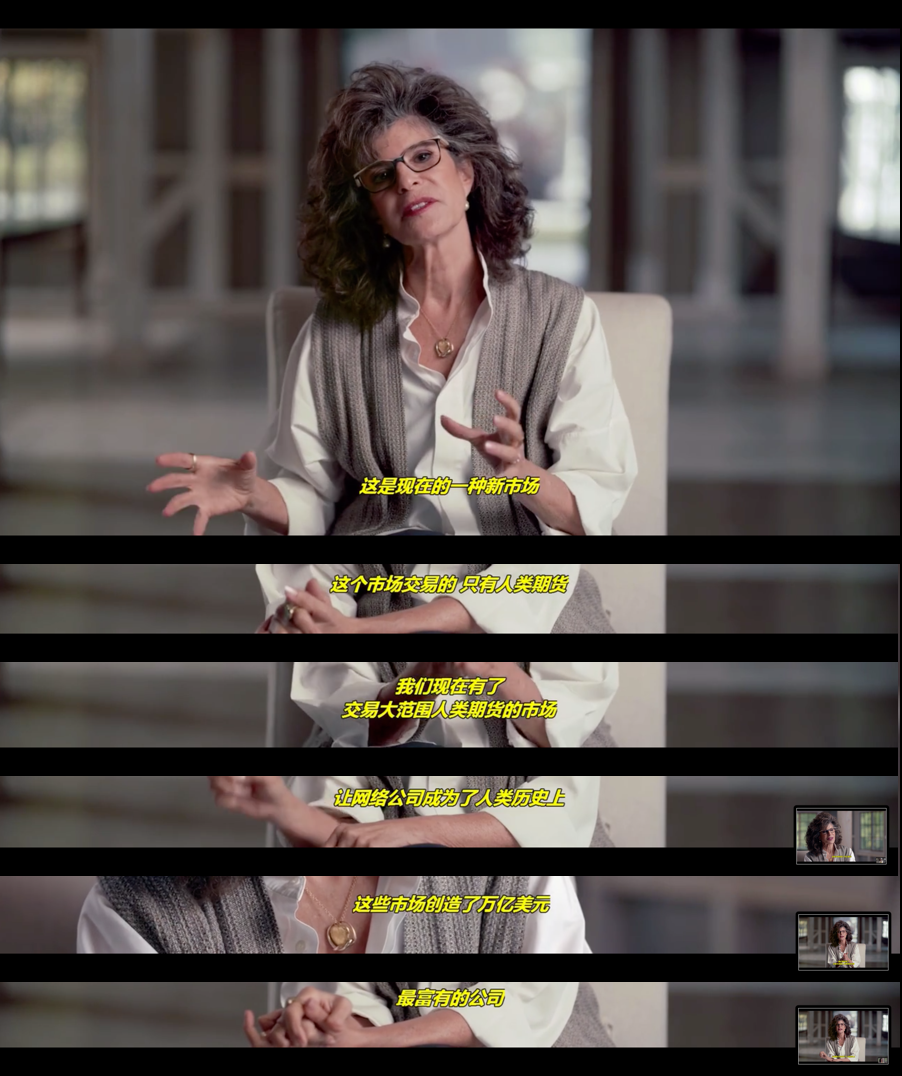 3. Google is not just a search tool, Facebook is not just a social tool for you to connect with friends,In fact, all kinds of Internet products, they are robbing our attention。 Think carefully about how these Internet companies work. Users are free, advertisers pay, why do advertisers pay? He's going to pay for your ads, and our focus is on selling to advertisers. More precisely,Their products are in fact gradual and unknowing changes in our behavior and cognition。 That's the only thing they make money from: changing what you do, the way you think, changing who you are.
3. Google is not just a search tool, Facebook is not just a social tool for you to connect with friends,In fact, all kinds of Internet products, they are robbing our attention。 Think carefully about how these Internet companies work. Users are free, advertisers pay, why do advertisers pay? He's going to pay for your ads, and our focus is on selling to advertisers. More precisely,Their products are in fact gradual and unknowing changes in our behavior and cognition。 That's the only thing they make money from: changing what you do, the way you think, changing who you are. Algorithms are like magicians,
deceive our eyes and brains.
4. Magicians were almost the first neuroscientists and psychologists to understand how people's minds worked.Magicians understand a part of your mind that you don't even realize, and that's the key to making illusions work. What the algorithm is doing is magic.5. Every business has a dream: to run an advertisement, there is a guarantee of success. This is the business of internet advertising platformsSales certainty。 To this end,Internet platforms must have the ability to prejudge, and excellent prejudgment begins with access to large amounts of data.6. All behavioral data about our use of Internet social products is monitored and recorded, depending on how long you stay in a picture, our lonely, depressed moments, our love of looking at our predecessors' information, what we do late at night,These data, which we don't care about, are fed to the systemAnd that hardly requires human care, and the system keeps making better and better judgments about who we are and what we're going to do.7. Many people have a misconception that our data has been sold, and Facebook's interest is certainly not to sell the data, but to use it to build a model that predicts our behavior.Companies with the best models are the winners。We've created an entire generation of people around the world with Internet technology, growing up in the background, communicating with each other, and the culture permeated with the ghosts of system manipulation.8. Tristan Harris at Stanford University's Persuasion Technology Laboratory studies how to use psychological knowledge to persuade people and how to apply this to Internet technology. Many Silicon Valley Internet companies have learned this.They want to control people's behavior and let people do what they want, such as constantly sliding their fingers across the screen to view information.For example, pull down, top is the updated content, then pull down, the top is new, every time the same, this is psychologically called "positive positive reinforcement." You don't know when you can brush it, or what you can brush. It's actually the same principle as slot machines in casinos.9. Countless engineers work like hackers into people's hearts and then get more product data growth.Their KPIs are Active, Growth, and Advertising Revenue.They do a lot of A/B testing and small experiments, and then they optimize based on the results to allow users to do what they want users to do, which is "manipulation."A lot of times they resort to the human subconscious, and when you're influenced you don't even realize it, because it's making money by taking advantage of the most vulnerable part of the human mind.10. We are all worried about this moment, when technology transcends the wisdom and power of humanity.But there were earlier moments when technology transcended human weakness, and this transcendence point was addiction.(Technology's use of human weakness) polarizes, radicalizes, fuels anger, fuels vanity,It is suppressing human nature and bruising it. 03
algorithm with your battle
Who's going to win?
11. When the bicycle came out, no one was dissatisfied and no one would say that it destroyed our society. We have never said that bicycles have distanced parents from children, destroyed our democracy, and prevented us from telling the truth. If a thing is a tool, it will sit there faithfully and patiently.If something is asking for you, it wants to seduce you, manipulate you, and profit from you, it's not as simple as a tool.12. We have come through a tool-based technology environment,came to a technology environment based on addiction and manipulation。 Social media is not a tool waiting to be used in place, it has its own goals and its own ways to achieve them. Use your mind against you,13. Social media is a drug, and we have basic biological desires, such as keeping in touch with others, which directly affects the release of dopamine in the reward path, behind the evolution of millions of years, and we need to find mates to breed in groups.There is no doubt that social media optimizes this connection and naturally has the possibility of addiction.The boys spend an average of 6 hours and 13 minutes a week on Instagram14. These technical products are not designed by psychologists who work hard to protect children, they are designed to make the algorithm very good at recommending the next video to you, very good at getting you to take pictures and filters. These things are not only controlling where we focus, but are getting deeper and deeper into the roots of the brain,Take away your child's attention and sense of self-worth。 It's important that we evolve a mechanism for evaluating other people in our community. But do we need to care what 10,000 people think of us? Do we need to get social recognition every 5 minutes? 15. We train and regulate an entire generation, and when he is not at home, uncertain, lonely, afraid, he finds his own digital comfort,This degrades a generation's ability to manage its emotions。The girl in the film decided to delete the post with a low likeAmong the U.S. youth population, there was a significant increase in depression and anxiety in 2011-2013, with a sharp increase in the number of wrist cuts or self-harms per 100,000 adolescent girls. Teenage girls (15-19 years) rose by 62 per cent, and girls (10-14 years) rose by 189 per cent before puberty, a nearly threefold increase. This inflection point coincides with the rise of social media.
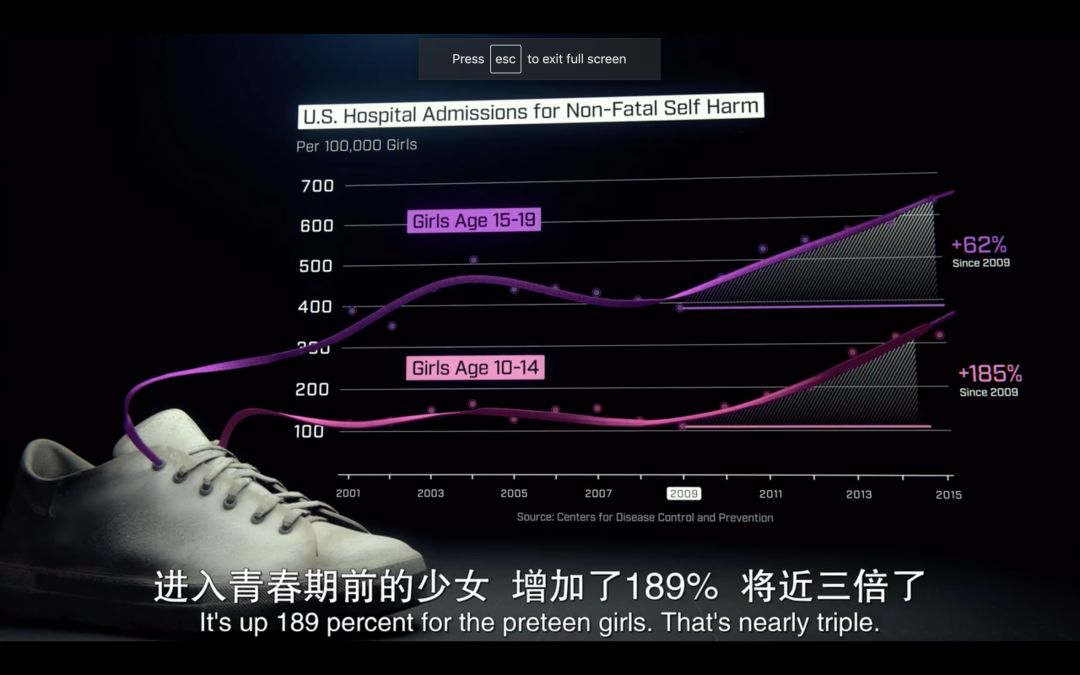 16. There is a saying that we should adapt to it. Just as we have adapted to previous generations of technological change, we have learned to coexist with these devices, but what this statement ignores is that we are faced with an intelligence that is moving forward at an unprecedented technology-driven exponential speed. Computer processing capacity has grown hundreds of millions of times since the 1960s, and nothing around us is growing at this rate. Yet our brains have been around for millions of years, and they have not evolved at all.Then came a screen with engineers and supercomputers at the other end, with different goals than you, so who would win the game?
16. There is a saying that we should adapt to it. Just as we have adapted to previous generations of technological change, we have learned to coexist with these devices, but what this statement ignores is that we are faced with an intelligence that is moving forward at an unprecedented technology-driven exponential speed. Computer processing capacity has grown hundreds of millions of times since the 1960s, and nothing around us is growing at this rate. Yet our brains have been around for millions of years, and they have not evolved at all.Then came a screen with engineers and supercomputers at the other end, with different goals than you, so who would win the game?
17. Algorithms are embedded in code, and algorithms are not objectively neutral, the algorithm is optimized by some kind of successful definition. You give AI a goal, and I want the result that AI learns how to do it itself, which is where the concept of machine learning comes from.No one really understands what they are doing to achieve this goal.18. Algorithms have their own ideas, although they are written by people.It was written to build a machine that would change itself. As human beings, we have almost lost control of these systems because they are controlling the information we see.Algorithms don't think about whether "pushing" is good for people19. Imagine that on social media, your opponent is artificial intelligence, which knows everything about you and can predict your future actions, and you don't know anything about it, which is not fair competition at all.The purpose of algorithms is profit, and our goal is to make our own lives fuller and more meaningful. Are we going to win?Algorithms don't care about the truth, they can't tell the truth.
So, do you care about the truth?
20. If we open a Wikipedia page, you see the same information as everyone else, which is one of the few things we share uniformly on the web. Imagine if Wikipedia said, we're going to give everyone a personalized definition, someone's going to give us money to do this, and Wikipedia's going to monitor you and figure out what you're going to do to represent some business interests, and that's going to make a difference that's in the business interest of your customers. This changes the entire term. Can you imagine? Facebook, Google, your YouTube push is the same.
The results and recommendations of searches can also change in different regions21. After watching this film, I knew that we had googled in different places and we got different results. For example, we enter "Climate change is..." in the search box, and in some cities you will see autofilled cues that say "climate change is a hoax" and in others you will see "climate change is a violation of nature". This feature doesn't provide the truth about climate change, but depends on where you search and what Google knows about your personal interests (for example, if you're more attracted to conspiracy theories, it pushes you "climate change is a hoax").Even two very similar friends see completely different things, because the algorithm presents the content according to how perfect it is for a person.Gradually you will have the illusion that everyone agrees with you, because everyone in the news you push is very similar to you, and once you get to this state, you are easily manipulated, in the same way as you are manipulated by magicians.22. The former tringe algorithm recommendation engineer admits that one of the algorithms he studied increased social polarization. But in terms of online time,The polarization approach has been extremely effective in getting people to watch online all the time。Supporters of both parties in the United States have been deeply divided in 2017Famous basketball player Kyrie Irving said he believed the earth was flat and later publicly apologized, saying it was a pot of pipe algorithms. The statement "Earth is flat" has been recommended hundreds of millions of times by algorithms, and it's easy to tell that there are probably only a few idiots who really believe it. But the scary thing is that algorithms get smarter every day,Today it can convince a small number of people that the earth is flat, and tomorrow it can convince you of a completely false thing。24. Fake news spreads on Twitter six times faster than real news。 What is the world like when one person has a six-fold advantage over another? As you can imagine, there are things that tilt the fundamentals of humanity. Make some behaviors harder, some behaviors easier.25. We've created a system that favors fake information, not because we want to, but because fake news makes it easier for these companies to make money, you know, and real information is boring.It's a business model that uses false information to make money by allowing unregulated information to be pushed to more people and sold for better prices.26. Facebook tweets trillions of news trots every day, and they can't know which information is true and what's fake. No tool has ever been as low-cost and efficient as Facebook to reach such a wide range of people. Algorithms and politicians are becoming more professional in learning how to motivate us, and are very good at making fake news that we can accept easily.We seem to lack control over who we are and what we believe in.27. Many people believe in the theory that we are building some of the world's super-brains, and that all our users are just interactive neurons. You're like a small programming node that serves this giant brain, it doesn't give you money, it doesn't let you see the truth, you don't have autonomy, you don't matter at all.05
Outside the algorithm, what controls us isToday.
The religious pursuit of profit in the economy and society
28. In the world we live in, dead trees are more economically valuable than living ones, and dead whales are more valuable than living whales. Human beings have repeatedly destroyed the ecological environment because of our religious pursuit of profit at all costs.The scary thing is, you're a tree now, a whale. Because we spend time staring at the screen, more economically valuable than we spend this time living our own rich lives,So artificial intelligence, many times smarter than us, draws our attention to what they want us to see, not what we want us to see most consistent with our own goals, values, and lives. 29. Technology is not a threat to the very survival of mankind, but it can bring out the worst things in human society, which is a threat to the survival of mankind. If you don't know you're in Matrix in Hacking Empire, how do you wake up from Matrix Matrix? So, how to help themselves?
30. Every time in human history, something gets better because someone comes forward and says, "This is stupid, we can do better".This.It is the critics who drive improvement, and the critics who are the real optimists.This market needs legal sanctions. This is not a radical proposal. We sanction the human organ market, we sanction the human slave market, because they all have inevitable and destructive consequences.In the film, Tristan Harris walks into a U.S. Senate hearing on "persuasive technology."At the end of the film, the rebels of "Persuasive Technology" offer advice on the daily actions of ordinary people:Turn off all kinds of notifications on your phone, especially those that don't provide timely or important information.
Use a search engine that doesn't store search history, or install a plug-in in your browser that removes Recommendations.(The recommended search engine in the film: Qwant, and Google Chrome can install plug-ins to remove search history)
Always choose for yourself and don't accept videos recommended for you by video sites.
Before sharing any information, search for and find facts and think about the source of the information.
Make sure you get information from different sources, such as following people you don't agree with, so you can see different points of view and information.
Uninstall social media and news programs that over-encroach on your time.
Move all equipment out of the bedroom at a fixed time each night.
Children are prohibited from using social media until they go to high school.
Communicating with your child about "the time you spend on your phone every day" often gives you a reasonable plan.
'To change all this, it takes a miracle, and that miracle is the collective will,' the film says. More people are aware of the seriousness of the problem and are making a sound.So, you are welcome to forward.Want to see this film, Station B can search.If you're not done after watching the film,We've also prepared a list of books related to "surveillance capitalism" and welcome you to reply to "surveillance capitalism" in the public dialog box.The picture in this article is screenshotd fromThe Social Dilemma, a documentary, Monitoring Capitalism: Smart Traps You may also want to read these 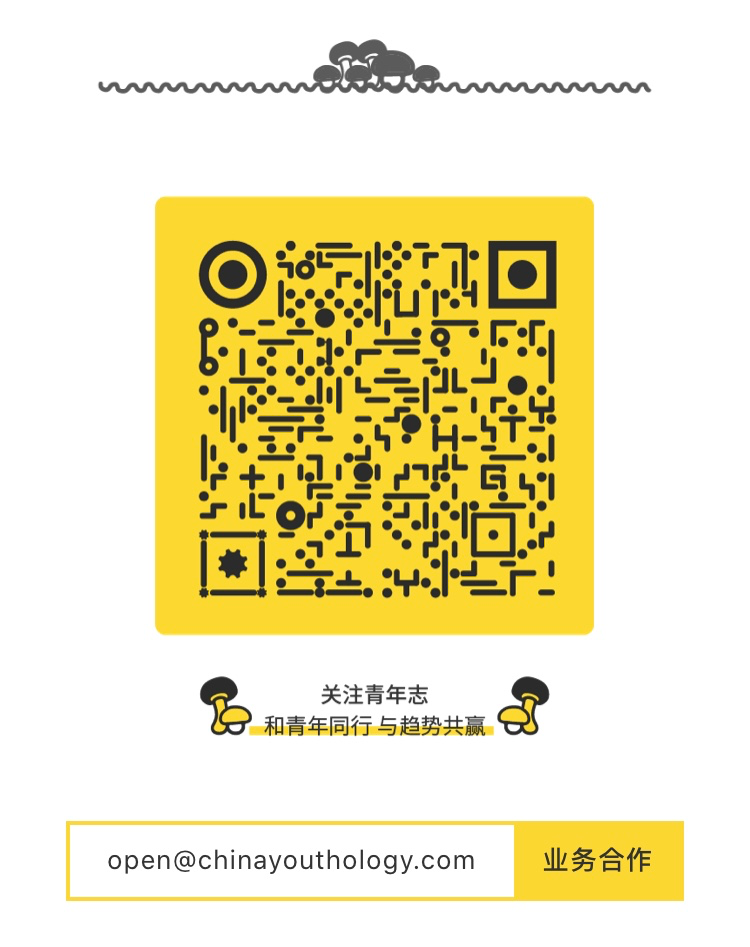
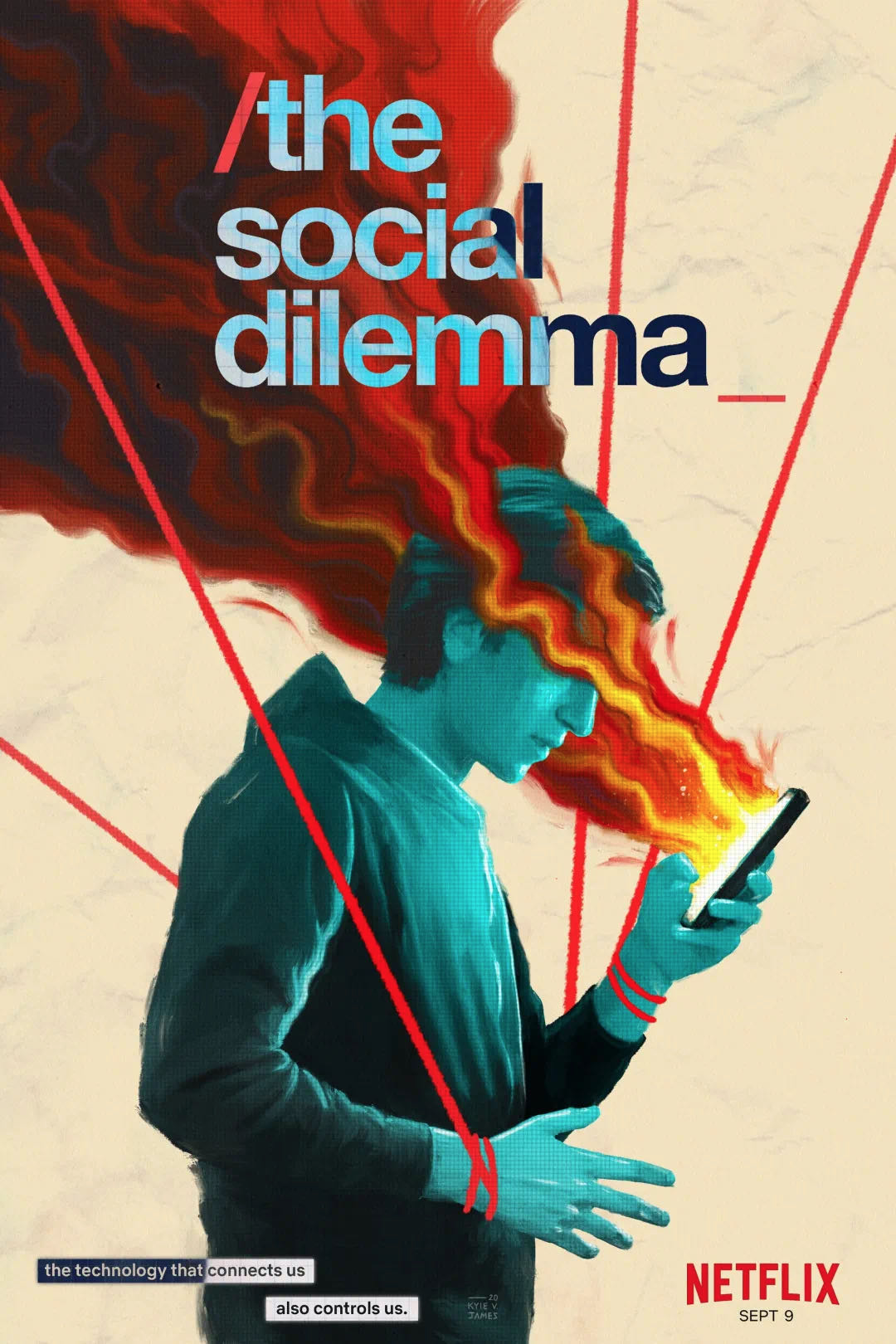
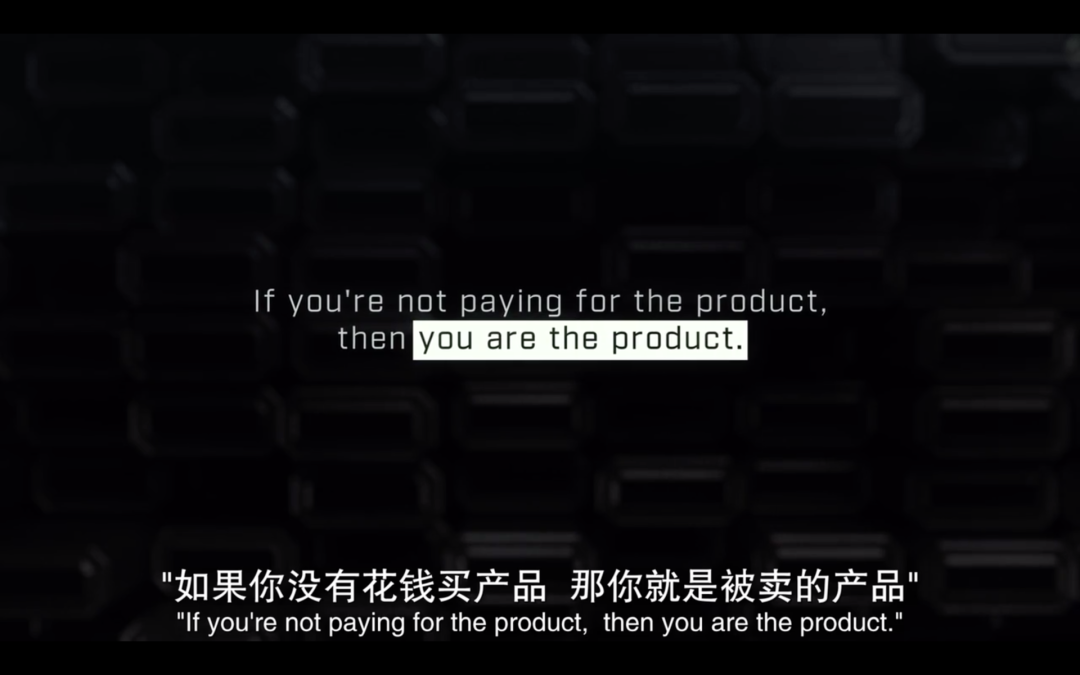


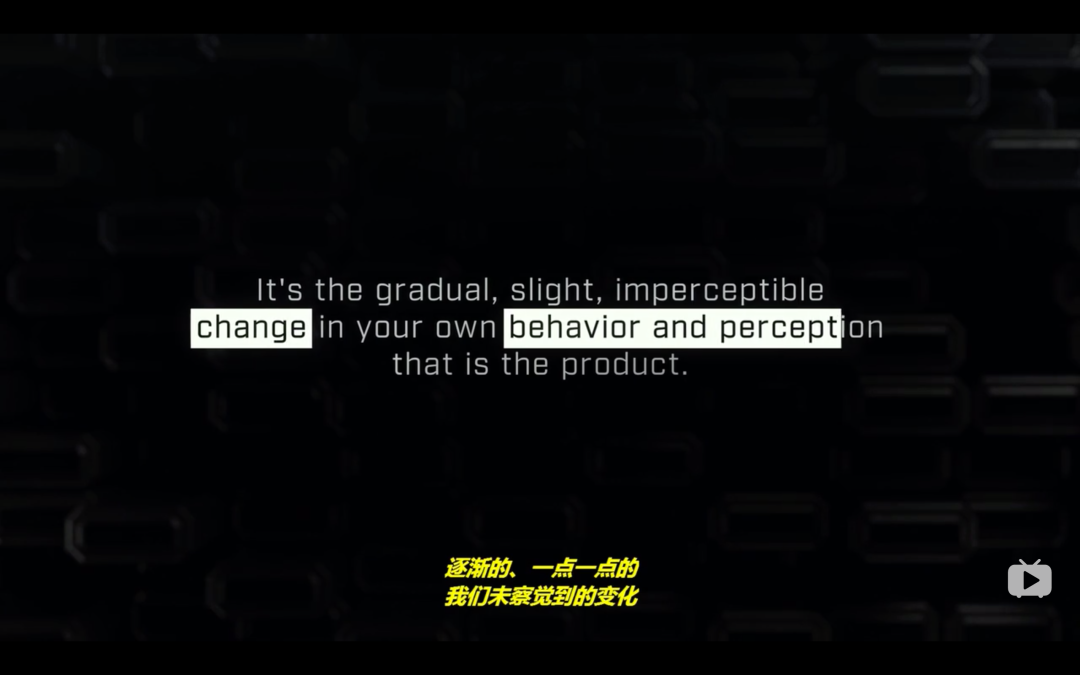
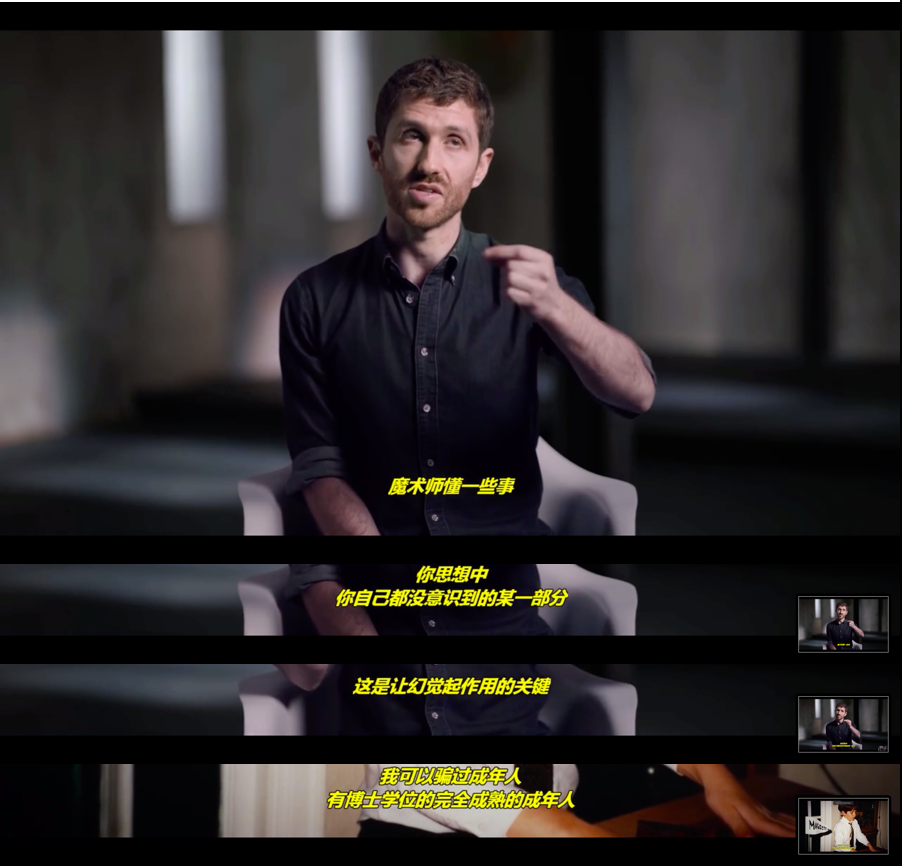
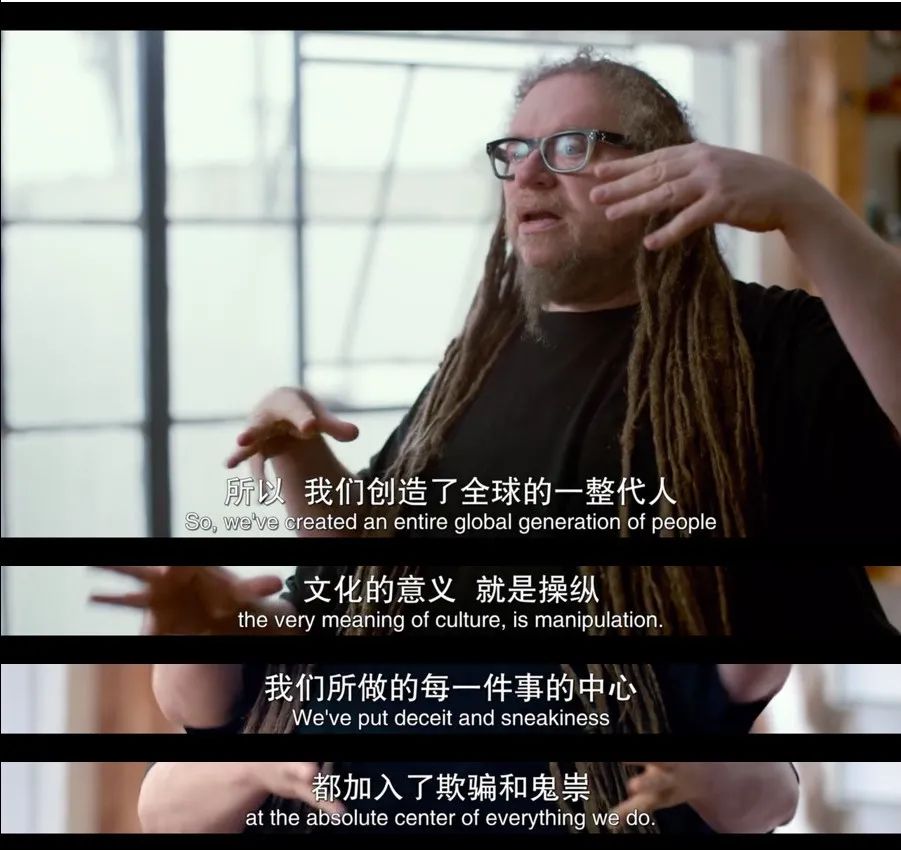
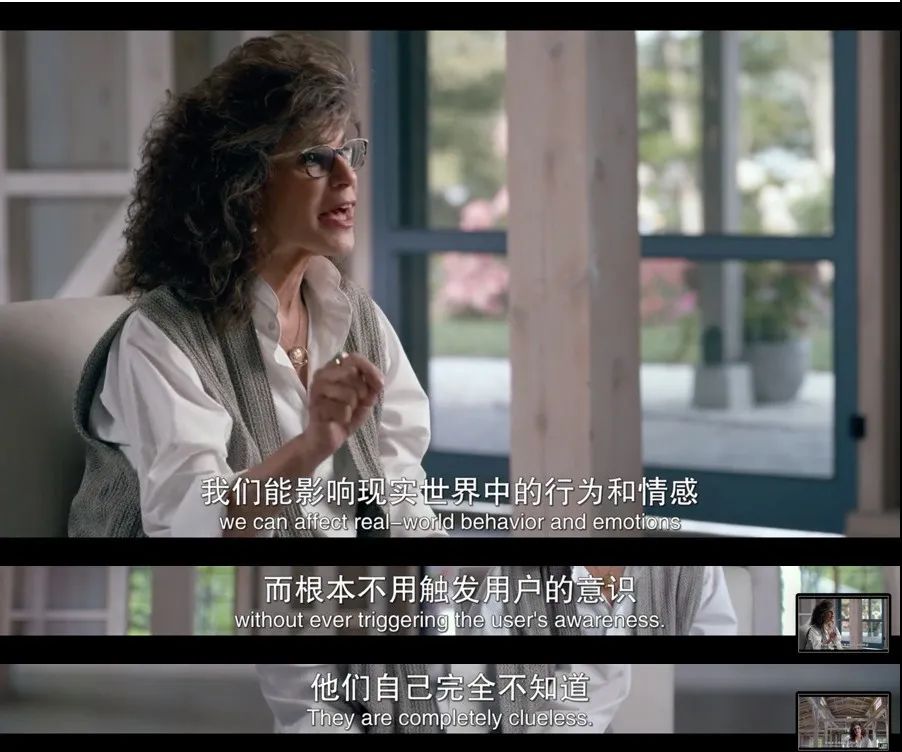



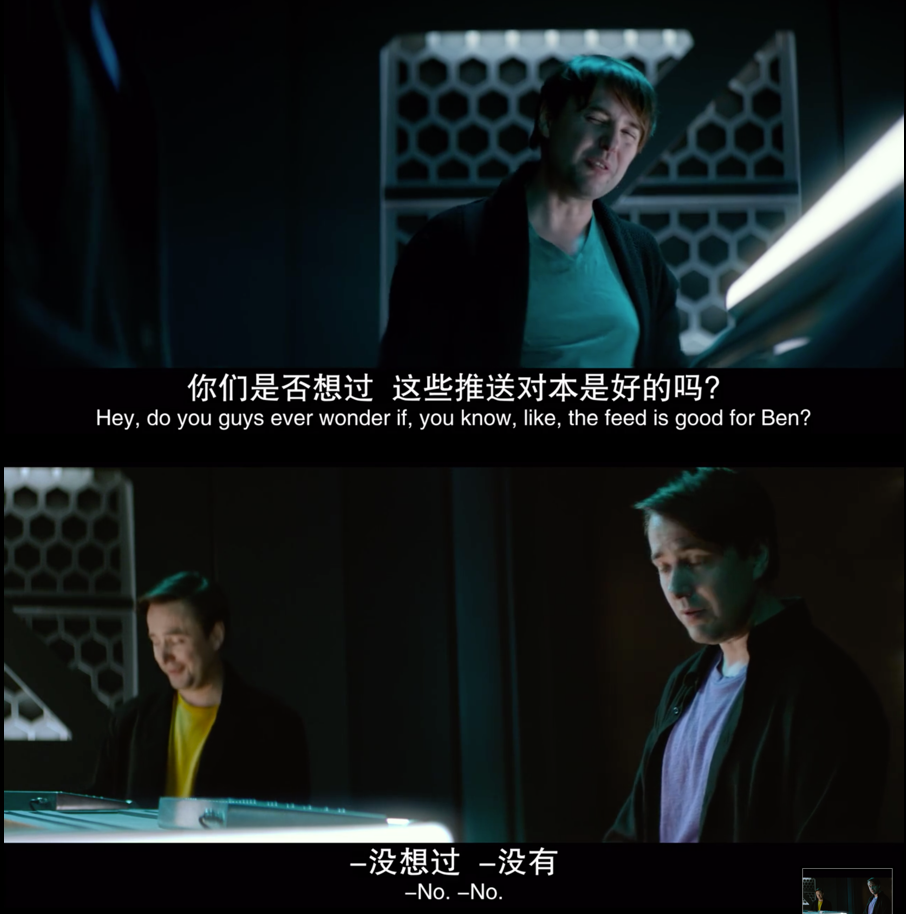

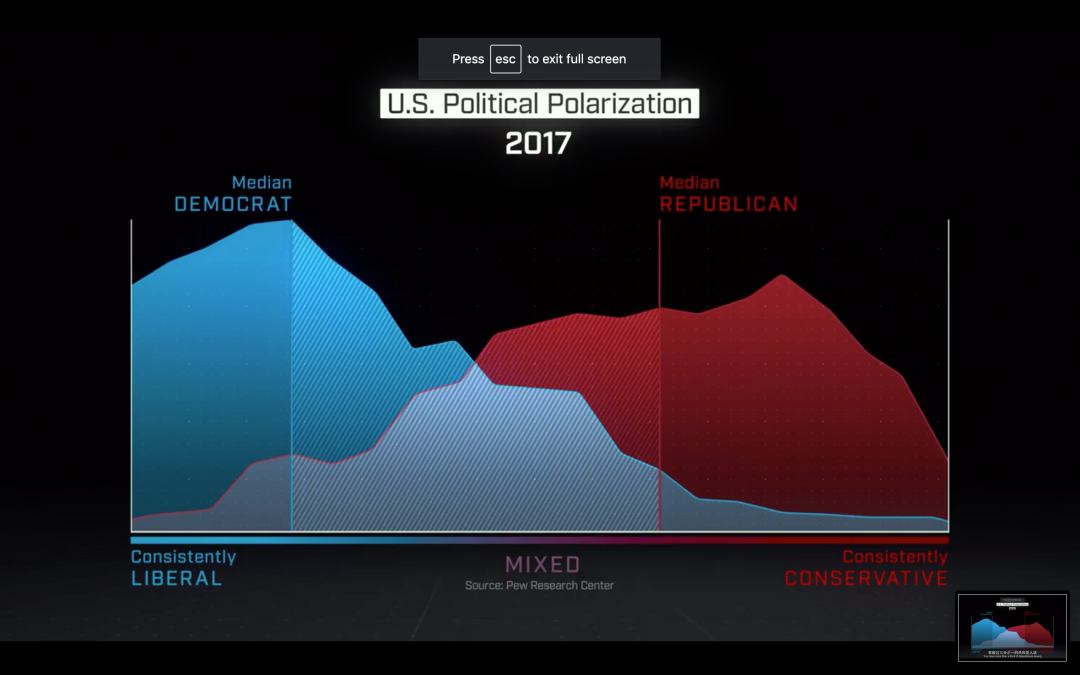
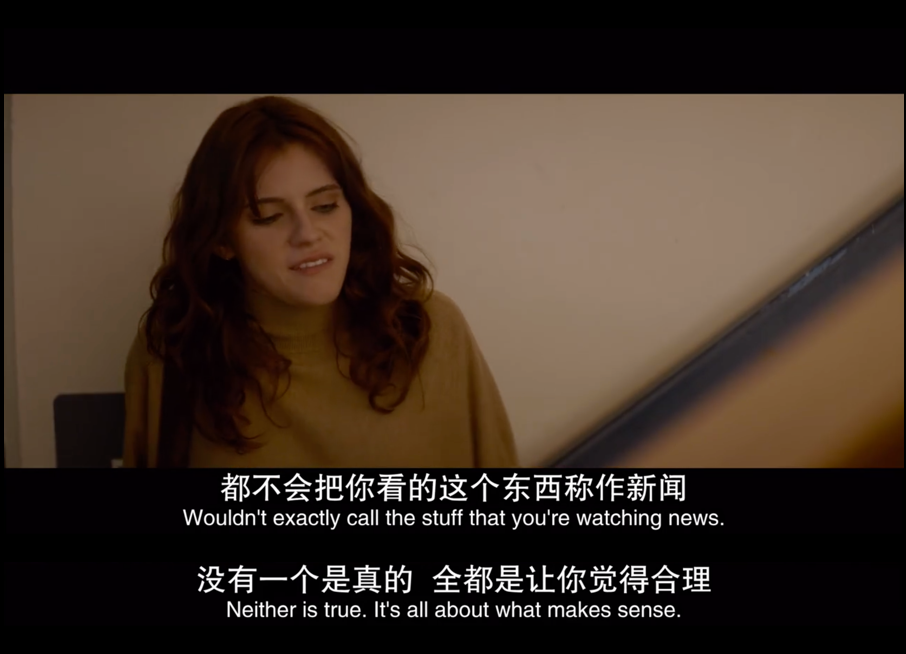
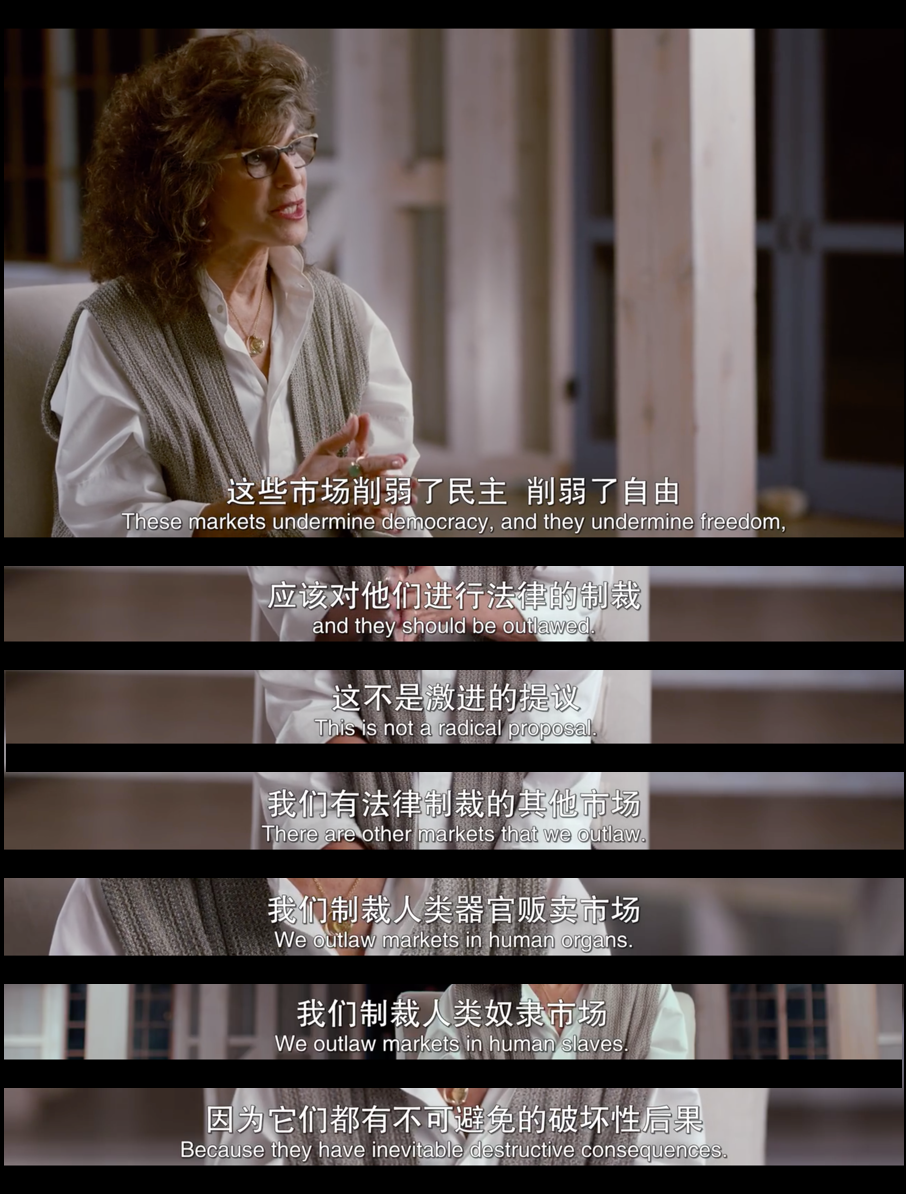
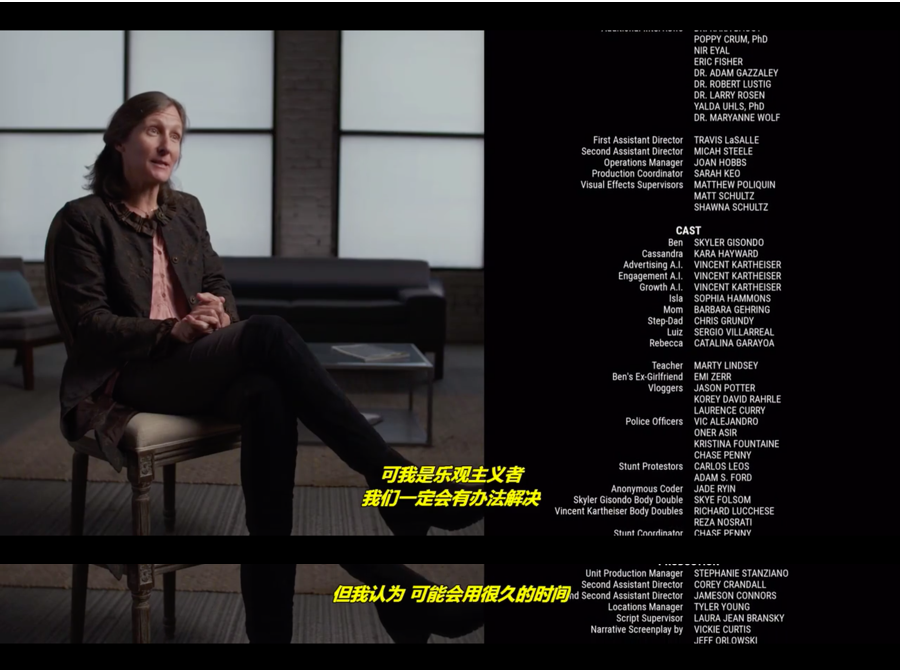
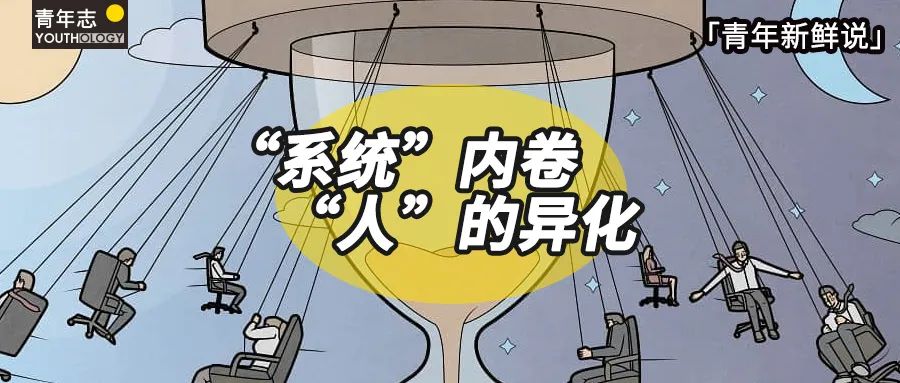



Go to "Discovery" - "Take a look" browse "Friends are watching"